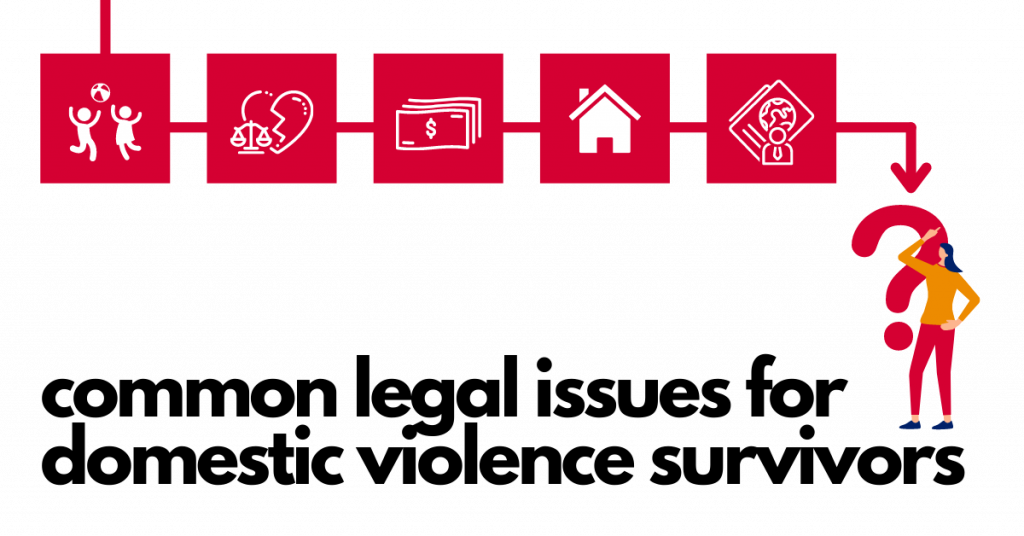A Lawyer May Be the Best Way to Stop Domestic Violence

While domestic violence is illegal in the U.S, many people do not seek help because they don’t believe that their situation is a legal issue, or that the law can actually provide help to victims. But studies show that having a lawyer is one of the best ways to prevent future instances of domestic violence 1. So what can a lawyer do to stop domestic violence?

The initial focus is on securing a protective order—a document signed by a judge that declares an abuser must stop harassing, abusing, stalking, and harming their victim. These protective orders successfully stop violence in nearly half of the cases. The majority of women report feeling safer and more secure after obtaining this legal protection. And while not a guaranteed means to stop abuse, protective orders do help many victims get relief. According to the report entitled Supporting Survivors,
“[S]tudies have shown that the availability of civil legal aid can be effective in reducing rates of violence, and even more effective than alternative interventions such as the provision of shelters or counseling services.” 3
Domestic violence is an ongoing issue, but the rates of domestic violence have changed over the years. In fact, the Department of Justice notes that between 1993 and 1998, domestic violence rates nationally fell by an astounding 21%. So what caused this decline? The reduction in domestic violence correlated with increased access to services for victims, especially legal services. 4 These economic researchers found that during that same time period, legal services geared towards domestic violence increased from only 336 programs nationally to over 1,190 programs.
Increased funding for legal services organizations may be the most effective solution to solving the problem of domestic violence. According to the same research cited above,
“[O]nly the availability of legal services in a woman’s county of residence was found to reduce the likelihood of abuse. The provision of legal services, according to the authors, ‘significantly lowers the incidence of domestic violence.”
This point is strengthened by a study by the American Bar Association, which showed that victims of domestic violence who have an attorney in court are 250% more likely to secure protective orders than their counterparts who attempt to represent themselves in court.
At Legal Aid, we provide lawyers to people living in poverty, to help them gain protection against abuse. While the initial focus the lawyer is to secure a protective order to stop the abuse, our lawyers also address additional legal issues that the survivor may be facing related to the abuse.

At Atlanta Legal Aid, we know first-hand the wide scope of legal issues that victims of domestic violence face. In one domestic violence case, our client and her daughter had managed to escape from an abusive living situation. However, the property manager of her apartment tried to force her out, telling her she would never be able to get a subsidized apartment again. Even though she had managed to escape from her abuser, the apartment claimed she was a threat to the safety of other tenants. With the help of an Atlanta Legal Aid lawyer, she requested that they transfer her to a different apartment complex where her abuser would not be able to find her. After lengthy negotiations and the advocacy of a lawyer, they agreed to reinstate her tenancy and move her into a different subsidized complex where she and her child can be safe.
Unfortunately, this is just one example of the many legal challenges victims of domestic violence face, even after they leave their abusers. In addition to facing increased instances of eviction due to their abusers’ behavior, victims of domestic violence deal with a whole range of legal issues. As the report, Supporting Survivors, explains,
“Since the majority of domestic violence victims are low-income, it is not surprising that domestic violence cases are often interwoven with child support, housing and eviction, consumer debt, and immigration-related issues.”
Recognizing the multitude of legal issues that victims of domestic violence face, especially those with low-income, it makes sense that legal interventions are especially effective at preventing future instances of domestic violence. Legal Aid lawyers—those especially knowledgeable and experienced in issues related to poverty law—are positioned to be the best form of help for these victims. Because of the barriers women face to leaving, the largest of which is economic dependence on their abuser, these women need appropriate support that will make it economically feasible to leave their abusers.
Legal Aid lawyers can help secure immediate legal protection for victims of domestic violence, while also looking at the wider picture, dealing with related legal matters, and connecting victims to other social services in the community.
Having a lawyer can not only provide legal protection against abuse, but help women secure the necessary supports to live independently from their abuser. Lawyers are key to disrupting the cycle of domestic violence, and while people are not entitled to a lawyer in domestic violence cases, there are free and low-cost options for people of limited financial means.
Atlanta Legal Aid is one of these options. Every year, Atlanta Legal Aid assists over a thousand victims of domestic violence in securing legal protection for themselves and their children. Although people can represent themselves in matters concerning domestic violence, it helps to have a legal advocate who knows the law and court protocol.
1 One study, conducted in 2003 by economists Amy Farmer and Jill Tiefenthaler, showed that legal services were more likely to decrease domestic violence than other interventions.
2 According to the report by the Carsey Institute, Civil Protective Orders Effective in Stopping or Reducing Partner Violence